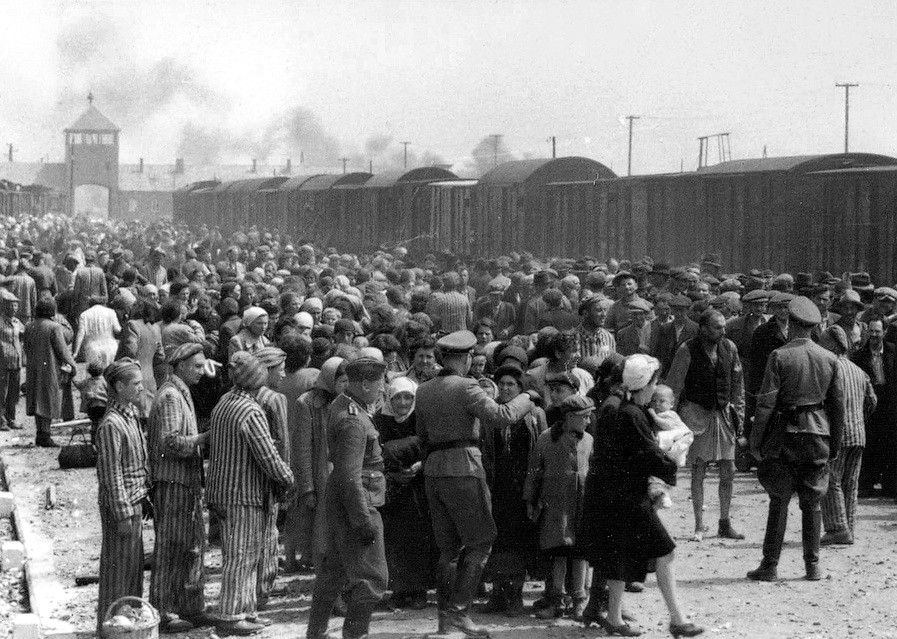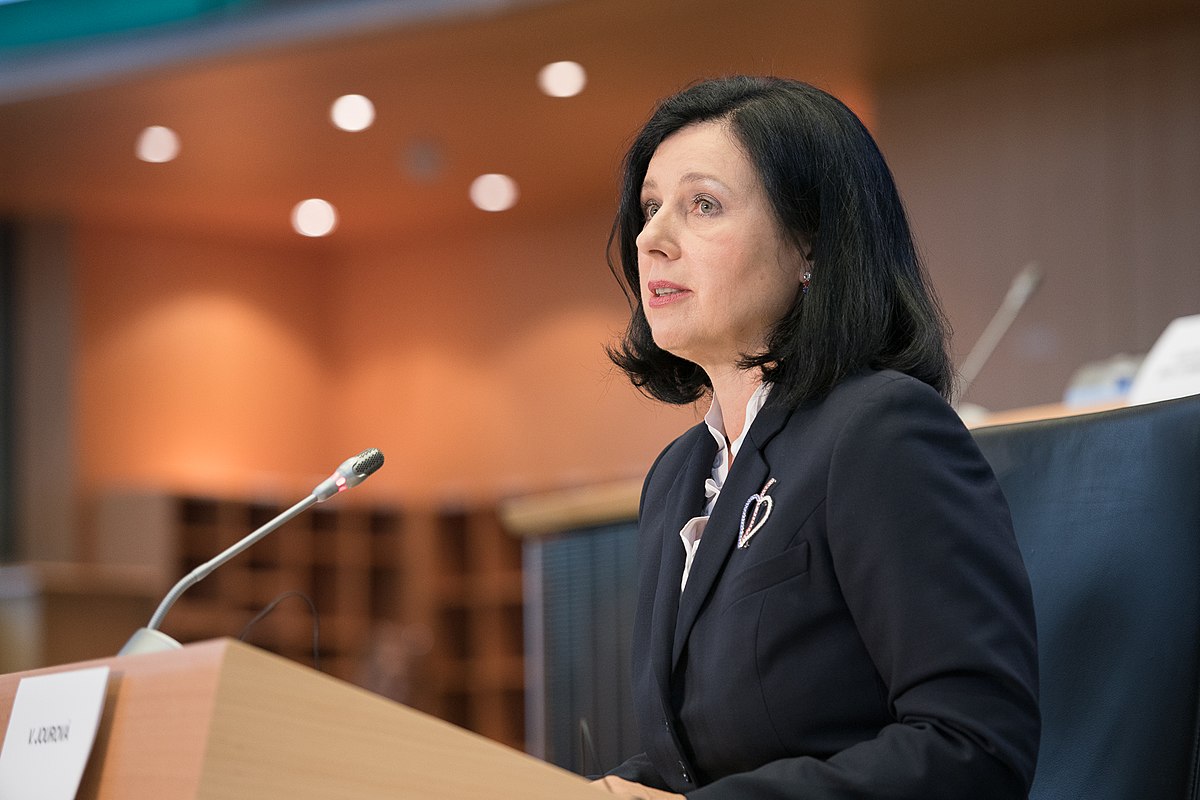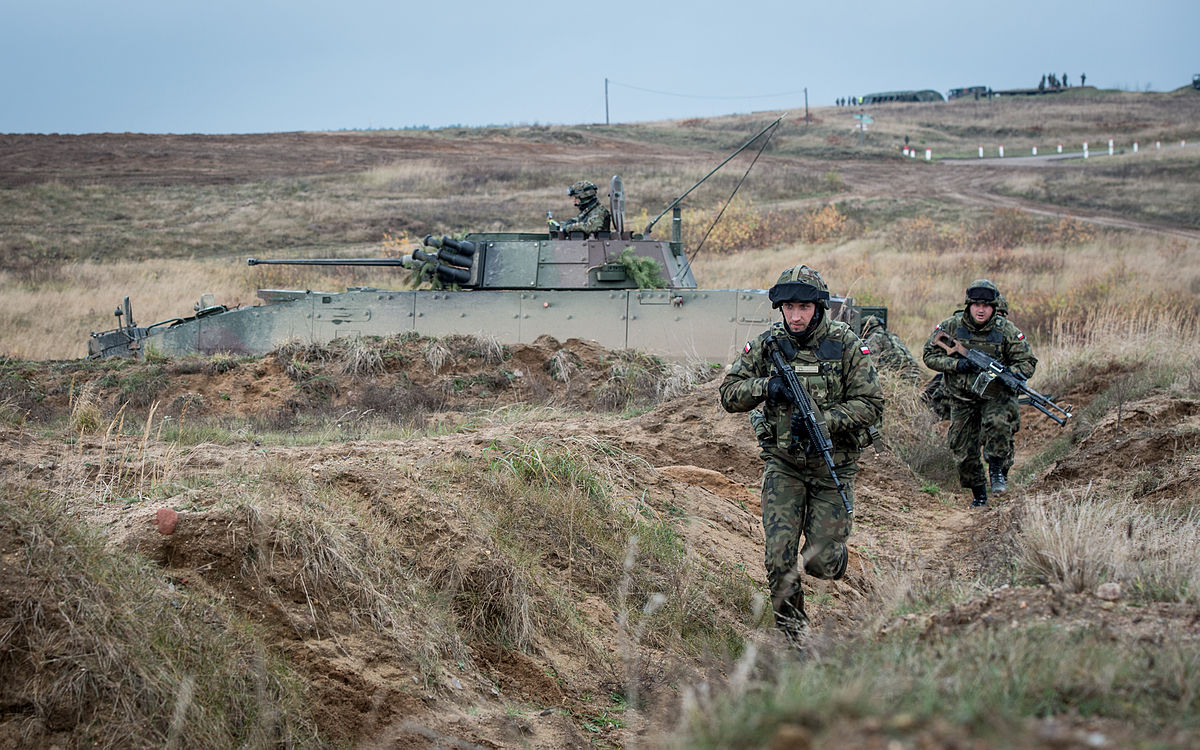A kilogram of gold for a life. This is how Poles saved Jews from the Germans

“Whoever had no gold lent me the money with which I bought jewelry. I was running amok, determined it must work. And it actually worked. At 5 pm, a truck with arrested Jews arrived at the agreed place. The German looked at the bribe, put it in his pocket and released these poor people” – says Józef Walaszczyk, the oldest living recipient of the Polish Righteous Among the Nations medal.
PIOTR WŁOCZYK: How many Jews found shelter in the estate you managed in Rylsk?
JÓZEF WALASZCZYK: Thirty. They were all young, the oldest were 23-24 years old. One third were women. This whole group came to me at the beginning of 1940.
How did these people come to be under your protection?
I was asked to take care of them by Mr. Wengrow, an important figure in the Jewish community in Rawa Mazowiecka. We knew each other from pre-war times – he saved me when I needed a loan. Mr. Wengrow asked me to employ 40 young Jews, including his children, in the Rylsk estate. It was quite a challenge. I knew one thing – I had to go to director Miller from the Arbeitsamt (employment office) in Rawa Mazowiecka on this matter. There was no other way to deal with this. At first, Miller didn’t want to hear about it. In the end, however, I managed to convince him.
What arguments did you use?
The ones he cared about the most – financial. Such an agreement required Miller to be provided with “attachments”. The German had to show, however, that he was in charge here and eventually agreed to employ 30, not 40, Jews. He made it very clear to me that I was personally responsible for them… Every two weeks I had to report to Miller with a bribe for which I was getting an extension of my work permit.
What were the duties of your new employees?
As soon as the Germans brought them to me, I told them that they could do whatever they wanted on the property, as long as they were at work at our potato flour factory at 7 am. They lived separately, but probably didn’t have too much to complain about. They led a fairly normal life – as long as, of course, in those days it was possible to speak of normality at all. At the end of the working day, you could sometimes hear Jewish music and singing on the property.
How big was the bribe to the director of the Arbeitsamt?
Damn big. It was thousands of zlotys. German officials from the General Government, contrary to stereotypes or “German order”, were terribly corrupt. Of course, there were also those who, at the sight of a bribe, took out a gun and were ready to shoot a man on the spot, but those who took, plundered the Poles for power.
Every second Monday, all the Jews working for me were released from their duties in the factory. They had to be careful whether the Germans were coming for them. If they saw German cars driving to the estate, the honeys would flee to the hiding places that had been prepared in advance. Each time I was afraid that it would be the last Monday.
What did your last visit to Director Miller look like?
It was in the summer of 1941. The Jews have been with us for a year and a half. Each time I called the Arbeitsamt informing me that I was going to see them. This time Miller’s secretary told me the boss was gone, but I still had to come to get the stamp. I didn’t like the look of this. I told him that I had always made an appointment with Miller to deliver papers in person, but he said it would be different this time. It wasn’t hard to guess that something was wrong…
I told our Jews to be extremely vigilant this time, to be ready to run to their hiding places, because something bad is in the air. Most of them believed me, they were on their guard and ran away in time, but unfortunately a few people got used to the peace and quiet in Rylsk and did not take my warning to heart … These few Jews were caught when the Germans arrived at the estate. As I suspected, our agreement with Miller was expired.
What happened to those you took care of?
Jewish partisans were active in the forests beyond Pilica. At first some people came to the estate for food, but after some time their traces disappeared. I have no idea what happened to them next. The most important thing, however, was that they had a chance to survive. If they had stayed in the ghetto in Rawa Mazowiecka, their fate would have been sealed – they would have been sent to an extermination camp. Instead, they at least had a chance.

You said that the director of the Arbeitsamt made you personally responsible for the Jews. What did their escape mean for you?
I was sure they would punish me for it somehow. For about two weeks I looked anxiously for their cars, convinced that they would come for me at any moment. And yet, to my surprise, nothing happened. Nothing at all, as if this escape had never happened. I suspect that corrupt Miller wanted to sweep the case under the rug as soon as possible. He was probably afraid of the results of the investigation in this case.
How did it even happen that you got the property in Rylsk under management at such a young age?
It was our mainstay. The property belonged to my extended family. It was managed by Stanisław Okęcki. From an early age, I spent my vacations there and learned how it all worked. While still in high school, just before the war, I represented the estate on a business trip in Warsaw – although I was not yet 20 years old, I was responsible for shopping matters.
My mother worked in Rylsk as a medical assistant. She looked after the property owners and their employees. Mr. Okęcki liked me very much and introduced me to the secrets of this large and well-organized agricultural enterprise. In addition to the potato flour factory, hundreds of horses and cows were also raised on the property. After losing the war, Stanisław Okęcki could not look at the Germans, he did not want to have anything to do with them, but the company had to operate. Consequently, he gave me power of attorney. It worked to my advantage that I knew German very well – for that I am eternally grateful to my teacher from middle school, who made sure that I had the best grades without mercy (laughs). Thus, I became the commercial manager of a potato flour factory. More than half of the production had to go to German warehouses, but we could trade some of them. We transported the goods to Warsaw to our warehouse at ul. Krucza 34.
Warsaw was badly stocked…
Meanwhile, I had all possible passes and was able to carry food, medicines and other necessary goods to my friends and family from Warsaw without much fear – I spent a significant part of my childhood in the capital, so I knew a lot of people there. Together with Mr. Okęcki, we set ourselves such a goal – to help those who were not as lucky as we were.
And it was during one of such business trips to Warsaw that you met the love of life during occupation?
Yes. Her name was Irena Bartczak. Or at least that’s what she introduced herself as at the beginning of our relationship – we ran into each other in the spring of 1941. It soon turned out, however, that Irena was hiding a secret.
When did you find out about it?
When the Gestapo burst into the guesthouse at 15 Żurawia Street, where we rented a room. Terrified, Irena confessed that her name was not Bartczak. She told me that she was Jewish and her real name was Irena Front … The worst part was that her papers were terribly forged. It seemed that we found ourselves in a hopeless situation – the Gestapo had to arrest us!
What did you do?
I left the room, locked Irena, and started simulating a terrible stomachache. Fortunately, Mrs. Grabowska, the owner of the guesthouse, confirmed to the Gestapo that I was alone and that I was often a guest here. The Germans took our word for it and refused to look into my room. Poor Irena had to say goodbye to her life at that moment …
The next day I moved Irena to my studio at Krucza 34. Our warehouse was located in the same building. The caretaker was supposed to look after her when I was not in Warsaw. I also got her new documents. They were in my name to keep things safe. Thus, on paper, Irena became my wife. Two other Jewish women joined her: Hanka and Helena. Fortunately, none of them had a typically Semitic appearance, which made it easier to hide on the “Aryan side”. Irena was completely alone because her parents were in India when the war broke out. They had no way to save their daughter.
Eventually, however, Irena was caught. The challenge you faced would probably overwhelm everyone.
On October 31, 1942, I received a telegram. Irena had been arrested and was in the Gestapo in Warsaw! I rushed to the capital. As I had contact with the Home Army in Warsaw, I found out that there was someone in the police who could help me. It was my friend’s father. And he organized it all. However, he told me something that was quite a surprise: Irena was not arrested alone. The Germans caught her in a group of 21 Jews! But here too, the corruption among the Germans gave us a chance: the Gestapo officer commanding this operation agreed to forget about the whole matter for a kilogram of jewelry.
How do you get a kilogram of gold in five hours?
I was going from a friend to a friend. Fortunately, I had a large network of business contacts. Whoever had no gold lent me the money with which I bought jewelry. I was running amok, determined it must work. And it actually worked. At 5 pm, a truck with arrested Jews arrived at the agreed place. The German looked at the bribe, put it in his pocket and released these poor people. How wonderful it was to see the joyful Irena!
Warsaw was badly stocked, but the real drama took place in the ghetto. How many times did you go in there?
Hard to say. I had many friends in the Warsaw ghetto. One of them was Dr. Marczewski. A great man, he could get away from there, but he decided to stay to look after his family and friends. I provided them with food, medicine, and other essential goods. As you know, a tram passed through the ghetto. I made an appointment with the driver that he would slow down at some point so I could jump out. We had the same arrangements on the way back. It was, however, terribly risky, I really do not understand how all of this could have worked out … In the ghetto, I wore an armband so as not to stand out from the crowd. There were terrible conditions there, indescribable. Today it seems to us that the coronavirus pandemic is the end of the world. It is not easy, but believe me, it has been much worse with us. Diseases literally consumed the ghetto. Eventually, during one of my visits, I caught typhus myself. I would not wish my worst enemy to go through this disease.
When were you closest to death?
There were many such situations. Going to the ghetto was asking for death, but I was closest to being shot at the train station in Nowe Miasto on the Pilica river. Actually, they were virtually executing me then.
What were you doing there?
I was a courier of the Home Army and I had documents for the local underground with me. It was 1941. The Germans surrounded the train on which I was traveling and ordered a search. Fortunately, there were Home Army soldiers at this station who were waiting for me. And thanks to them, my luggage was “lost” in mysterious circumstances. However, this was not the end of my troubles – the Germans considered a passenger without luggage a very suspicious phenomenon …
They interrogated me, beat me furiously. They shot rounds near my feet and over my head, they made me dance to the rhythm of their “music”. Eventually, an officer by the name of Hoffman in charge of them ordered my execution. They put me against the wall and a few soldiers stood in front of me. They raised their rifles and he began to count down: Eins, zwei… I knew it was really my end this time. I’m about to fall dead.
Meanwhile, instead of “Feuer!”, I heard “Halt!” Hoffman said dying on the spot like this would be too easy for me. He decided to take me with him to the headquarters, where he wanted to torture me. After he was done with me, he threatened to send me to Auschwitz to be “looked after” there.
What saved you from the camp?
I was saved by … another German. They formed a column from the Poles detained at the station and began to drive us to the Gestapo in Nowe Miasto. And then suddenly a motorcyclist drives up and gives Hoffman a scrap of paper. He read it and, furious, ordered to call me. The message said that I should be fired immediately as I am “indispensable to the operation of the factory”. It turned out that my mother was at the station and she saw what they were doing to me … God, what did she have to go through then … She called the German right away – Mr. Albrecht – to whom I was subordinate as the manager of the potato flour factory and she convinced him that I must be rescued immediately.
What do you usually say when young people ask you about the attitude of Poles towards Jews during World War II?
I answer that the Poles generally behaved decently.
Even though there were traitors?
If per 100,000 there were 100 people that were traitors, it was not a large number. Please remember that in times of war, some people have their worst traits activated. This is the case in every nation, especially if the occupant encourages or even rewards crimes. Poles can proudly say that the discovery of traitors usually resulted in flowers starting to bloom on his grave. This is how the underground state responded.
And how do you recall the Second Polish Republic in this respect?
Are you asking me about the situation of the Jews? They didn’t have it easy, but they didn’t have it very hard either. The Jews were different, and the Poles were also different. I remember the summer of 1939, when I was at a military training camp near Lidzbark, on the border with East Prussia. There were about 3,000 of us, young men. I was not even 20 years old at the time. There was also a group of Jews among us. Well, it happened that the members of the orchestra attacked these boys and beat them up. I was in a platoon that detested such actions with a passion. So we grabbed the shovels and beat these bandits. Since we were fighting against the members of the orchestra, naturally there were losses in the musical equipment.
This could not please the camp commander …
The commander of course stated that the culprits, that is us, would be punished. However, when the information about our motivation reached him, it turned out that it was not a trick on our part, we were treated differently. We covered the cost of repairing the damaged instruments and somehow the matter deescalated. It is true that there have been crimes, but we have not had systemic racism.
In 2000, the Yad Vashem institute, at the request of Irena Front, awarded you with the title of “Righteous Among the Nations”. How did you react to that?
I have never looked for the gratitude of people who I have managed to help. I believed it was my duty to fight and protect people who were at risk of dying. I broke up with Irena right after the war, but she remembered what we had gone through during the occupation. At the end of her life, she stated that she really wanted me to be honored with the title of “Righteous”. She said it was her “duty”. Since she was so concerned about it, I said: let her be (laughs). I feel good about the fact that I have managed to do something in my life. However, all this was possible only thanks to one person – Our Lady. I strongly believe that it was thanks to Her intercession that I was able to get through it all.
Józef Walaszczyk (born 1919) is the vice-president of the Polish Society of the Righteous Among the Nations. During World War II, he helped save 53 Jews.
This article was published in 2020 in “Historia Do Rzeczy” magazine.



